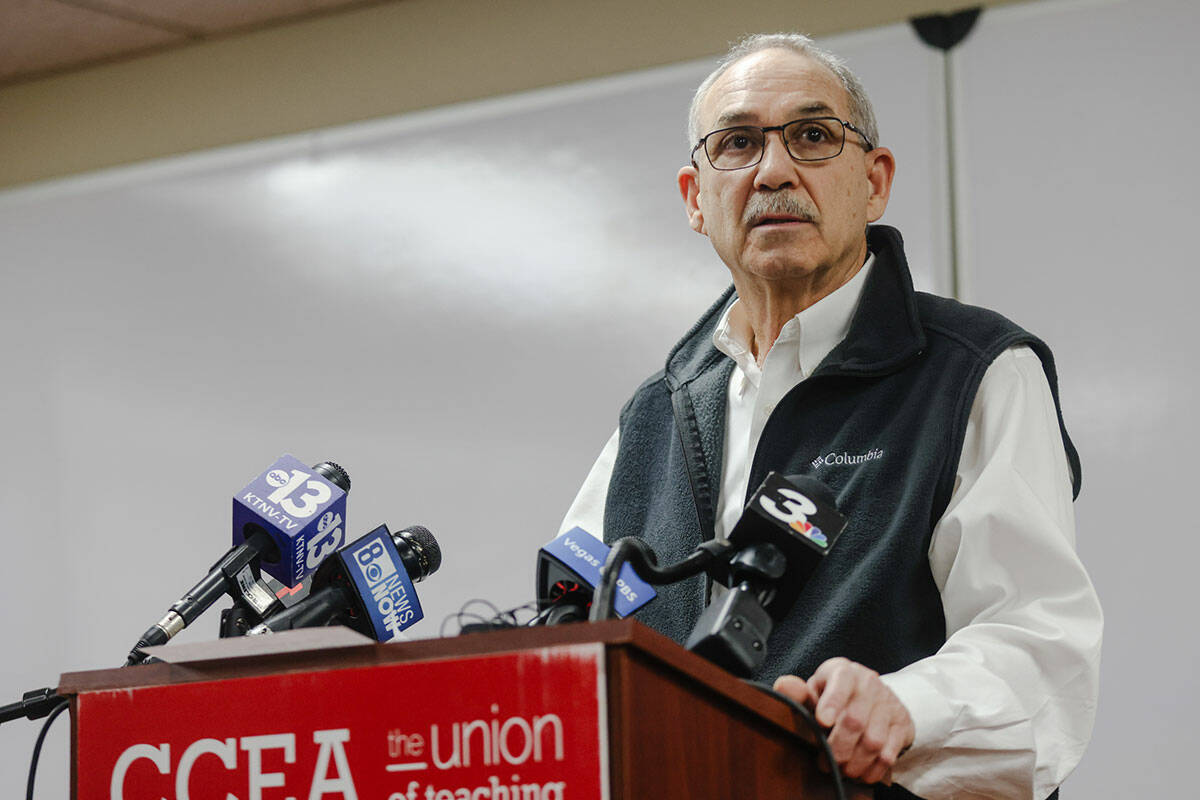EDITORIAL: Union does the two-step on differential pay
Two years ago, the Clark County Education Association argued that a plan to pay teachers more to work in low-performing schools was “egregious.” Earlier this month, the union testified in favor of paying more to teachers who work in hard-to-fill positions. It’s all about self interest, not the students.
Assembly Speaker Steve Yeager, D-Las Vegas, recently presented on Assembly Bill 398. While substantial parts of the bill text will likely be replaced with an amendment, it’s worth examining the details. A primary component is giving school districts extra funding so they can boost pay for hard-to-fill jobs.
In his presentation, Mr. Yeager laid out the need for such an incentive. At the start of the 2023-24 school year, more than 90 percent of the Clark County School District’s vacancies were in Title I schools. Title I is the federal designation for schools serving largely low-income families. Unsurprisingly, there’s a large connection between poverty and low-performing schools. As Mr. Yeager noted, “97 percent of chronically underperforming schools were Title I.”
This creates a destructive cycle. Students from low-income families are statistically more likely to struggle academically. Then, at their public school, they are less likely to have a full-time, permanent teacher. That’s a problem because teacher quality is the most important school-controlled factor in academic progress. More experienced teachers are less likely to want to teach at poor schools. That further depresses student achievement. This doom loop continues until students drop out or receive diplomas, which they may or may not be able to read.
Mr. Yeager then pointed out that recent differential pay efforts significantly reduced vacancies at Title I schools.
Clark County Education Association president Marie Neisess supported the bill. In her testimony, she praised the bill for providing “targeted compensation to help recruit and retain licensed teachers in hard-to-fill roles.”
This solution makes so much sense that it’s hard to believe education officials haven’t tried it before. Oh, wait. In early 2023, the union pitched a fit about the district’s effort to offer retention bonuses at certain schools. The union called it “egregious.”
Former Superintendent Jesus Jara said in an email at the time that the district wanted to provide “incentives to attract employees to those schools with the greatest needs.”
Mr. Yeager sounds like he could have copied his notes from Mr. Jara.
The union’s about-face is likely explained by Mr. Yeager’s conceptual amendment, which states money for the program “would be subject to collective bargaining.” As the union’s flip-flop and history of conflict show, that would be a foolish way to implement a good idea.

















